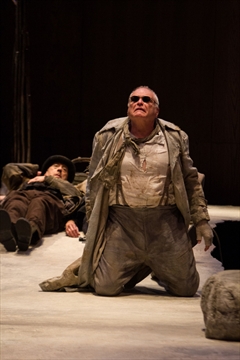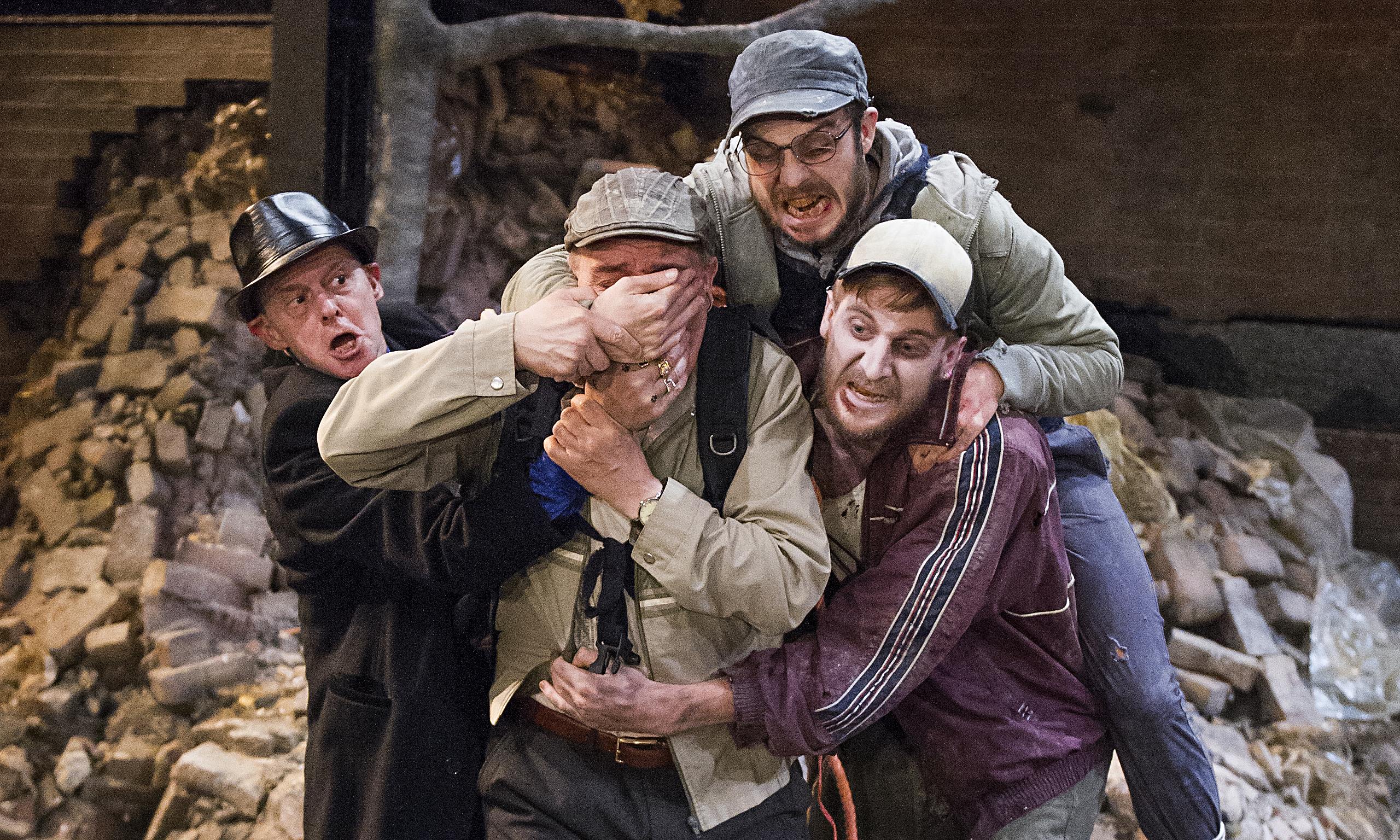

Within the gibberish Lucky makes comments on the arbitrary nature of God, man's tendency to pine and fade away, and towards the end, the decaying state of the earth. The monologue is long, rambling word salad, and does not have any apparent end it is only stopped when Vladimir takes the hat back. It can be supposed, Godot stands for an anthropomorphic image of. He asks them to give him his hat: when Lucky wears his hat, he is capable of thinking. Waiting for Godot can be considered as a modern morality play on permanent Christian themes. Estragon needs to leave at that point, yet Vladimir must remind him by and by that they can’t go they are sitting tight for Godot.

In any case, they soon understand that it is simply Pozzo and Lucky. Estragon wants to leave then, but Vladimir must remind him once again that they cannot go they are 'waiting for Godot. With the landing of Pozzo and Lucky, Vladimir and Estragon imagine that assistance (fortifications) have touched base from Godot. But they soon realize that it is just Pozzo and Lucky. With the arrival of Pozzo and Lucky, Vladimir and Estragon think that help ('reinforcements') have arrived from Godot. The monologue is prompted by Pozzo when the tramps ask him to make Lucky "think". Lucky falls and drags Pozzo down with him. He actually drops Luckys rope when they fall, and a number of minutes pass. The suddenly blind Pozzo is now pitifully dependent on Lucky and simply keeps up the appearance of being in control. As if viewed in a mirror, part of their dynamic has been reversed. Lucky is most famous for his speech in Act I. Lucky and Pozzo return (again) significantly changed since their appearance in Act 1. Pozzo mourns this, despite the fact that it was he who silenced Lucky in the first act. He philosophises, like Vladimir, and is integral to Pozzo's survival, especially in the second act. He changes the conversation and jerks the rope that is tied around Luckys neck, calling him 'pig.' He continues to pull Lucky around by.
#Pozzo waiting for godot free#
Pozzo asks if they were waiting for Godot here, on his land, but then he admits that the road is free land. Read this way, Pozzo and Lucky are simply an extreme form of the relationship between Estragon and Vladimir (the hapless impulsive and the intellect who protects him). Vladimir says hes an acquaintance, but Estragon says they hardly know him.

he represents one part of a larger, whole character, whose other half is represented by Pozzo). Lucky is often compared to Vladimir (just as Pozzo is compared to Estragon) as being the intellectual, left-brained part of his character duo (i.e. Beckett asserted, however, that he is lucky because he has "no expectations". Pozzo makes Lucky dance and think to pass the time. The two central characters, Vladimir and Estragon, wait for. Pozzo tells him what to do, he does it, and is therefore lucky because his actions are determined absolutely. Pozzo is on his way to sell Lucky but stops to talk to Vladimir and Lucky for a little while. Some have marked him as "lucky" because he is "lucky in the context of the play." He does not have to search for things to occupy his time, which is a major pastime of the other characters. Lucky's place in Waiting for Godot has been heavily debated.


 0 kommentar(er)
0 kommentar(er)
